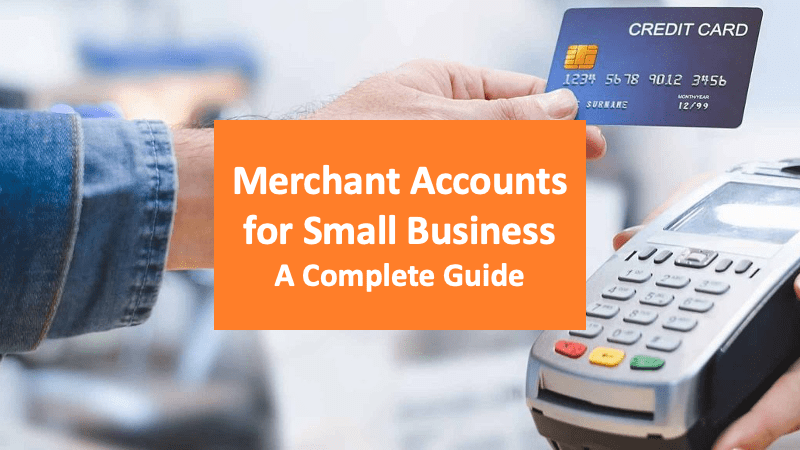Demystifying Merchant Accounts: A Comprehensive Guide for Small Businesses
Table of Contents
This is the most comprehensive guide you’ve ever read on merchant accounts. If you are considering opening and using a merchant account, this is a must-read!

As a small business owner, you may have come across the term “merchant account” while setting up your payment processing system. But what exactly is a merchant account, and how does it work? In this comprehensive guide, we will delve into the world of merchant accounts and demystify the concept for small businesses.
Table of Contents:
- How Does a Merchant Account Work?
- Why Do Small Businesses Need a Merchant Account?
- Types of Merchant Accounts
- How to Choose a Merchant Account Provider
- Setting Up a Merchant Account
- Understanding Merchant Account Fees
- Benefits and Risks of Merchant Accounts
- Tips for Small Businesses
- Conclusion
In today’s digital age, accepting credit card payments has become a necessity for most businesses, including small businesses. A merchant account is a type of bank account that enables businesses to accept credit card payments from customers. It serves as a liaison between the business, the customer, the credit card issuer, and the payment processor to facilitate smooth and secure transactions.
Merchant accounts are typically used by businesses that accept payments through various channels, such as in-person at a brick-and-mortar store, online through an e-commerce website, over the phone, or via mobile devices. Having a merchant account allows businesses to process credit card payments securely and efficiently, and it is an essential component of modern payment processing systems.
How Does a Merchant Account Work?
The process of a credit card transaction involves several parties, including the business, the customer, the credit card issuer (such as Visa, Mastercard, or American Express), and the payment processor. A merchant account acts as an intermediary that facilitates the transaction between these parties.
When a customer makes a purchase using a credit card, the payment details are transmitted to the payment processor for authorization. The payment processor verifies the transaction details, such as the card number, expiration date, and security code, and checks for available funds in the customer’s account. If the transaction is approved, the payment processor sends a confirmation to the business, and the funds are transferred from the customer’s credit card issuer to the business’s merchant account.
Once the funds are settled in the merchant account, the business can access them and transfer them to their business bank account. The process typically takes a few days, depending on the merchant account provider and the type of transaction.
You typically need a business account in order to open a merchant account. With that said check out a few of these resources if you don’t already have a business checking account:
How do I open a Small Business Bank Account?
What are the Benefits of Having a Small Business Bank Account?
Requirements for Opening a Business Bank Account
The Differences of Using a Personal Checking Account vs a Business Checking Account for Business
Why Do Small Businesses Need a Merchant Account?
Accepting credit card payments through a merchant account offers several benefits for small businesses:
Increased Sales
Accepting credit card payments can expand your customer base, as many customers prefer to use credit cards for their purchases. It allows you to cater to customers who do not carry cash or prefer the convenience of using credit cards for their purchases, potentially leading to higher sales and revenue.
Convenience for Customers
Offering the option to pay with credit cards provides convenience to your customers, which can lead to increased customer satisfaction and loyalty. It also enables you to offer flexible payment options, such as recurring billing for subscription-based businesses or installment plans, which can attract more customers.
Online Payments
If you operate an e-commerce website or accept online payments, having a merchant account is essential. It enables you to securely accept credit card payments online, which is the most common form of payment for online transactions.
Security and Fraud Protection
Merchant accounts come with built-in security features, such as encryption and fraud detection tools, that help protect your business and your customers from potential fraud or data breaches. This can give your customers peace of mind knowing that their payment information is secure, and it can protect your business from financial losses due to fraudulent transactions.
Professionalism and Credibility
Accepting credit card payments through a merchant account can enhance the professionalism and credibility of your small business. It signals to customers that your business is established and trustworthy, as accepting credit card payments is a standard practice for legitimate businesses. It also allows you to compete with larger businesses that accept credit card payments, giving you a level playing field in the market.
Streamlined Payment Processing
Having a merchant account can streamline your payment processing system. It automates the transaction process, eliminating the need for manual handling of cash or checks, reducing the risk of errors and improving efficiency. It also simplifies the accounting process, as all transactions are recorded and tracked electronically, making it easier to reconcile payments and keep accurate financial records.
Types of Merchant Accounts
There are several types of merchant accounts available, and the right type for your small business depends on your specific needs and the nature of your business. Here are some common types of merchant accounts:
Retail Merchant Account:
This type of merchant account is suitable for businesses that operate in a physical location, such as a brick-and-mortar store. It allows businesses to accept credit card payments in person using a point-of-sale (POS) terminal, which is a device that reads the credit card information and processes the transaction.
Internet Merchant Account
If you have an e-commerce website or accept online payments, an internet merchant account is essential. It enables you to securely accept credit card payments online, typically through a payment gateway, which is a secure online portal that connects your website to the payment processor.
Mobile Merchant Account
This type of merchant account is designed for businesses that operate on the go, such as food trucks, delivery services, or service providers who visit customers’ homes. It allows businesses to accept credit card payments using a mobile card reader that can be attached to a smartphone or tablet.
High-Risk Merchant Account
Some businesses are considered high-risk due to factors such as the nature of their products or services, their industry, or their credit history. High-risk merchant accounts are designed for businesses with a higher level of risk, and they typically come with higher fees and stricter underwriting requirements.
How to Choose a Merchant Account Provider
Selecting the right merchant account provider is crucial for small businesses to ensure smooth payment processing and minimize costs. Here are some factors to consider when choosing a merchant account provider:
a. Fees and Costs:
Merchant account providers typically charge various fees, such as transaction fees, monthly fees, setup fees, and chargeback fees. It’s essential to understand the fee structure and compare the costs of different providers to find the one that offers the best value for your business.
b. Contract Terms:
Merchant account providers may require you to sign a contract, which outlines the terms and conditions of the agreement. It’s important to review the contract carefully, including the length of the contract, any early termination fees, and any other terms that may impact your business.
c. Payment Processing Features:
Different merchant account providers may offer different features and functionalities, such as the ability to accept different types of credit cards, international payments, or recurring billing. Consider the specific needs of your business and choose a provider that offers the necessary features to meet your requirements.
d. Security and Fraud Protection:
As security is a critical concern for credit card payments, make sure the merchant account provider offers robust security measures, such as encryption, tokenization, and fraud detection tools, to protect your business and your customers’ information.
e. Customer Support:
Reliable customer support is important for small businesses, as any issues with payment processing can disrupt your business operations. Look for a merchant account provider that offers responsive customer support and can quickly resolve any issues that may arise.
Setting Up a Merchant Account
Setting up a merchant account typically involves several steps:
Research and Comparison: Start by researching different merchant account providers and comparing their offerings, fees, and features. Look for reviews and testimonials from other small businesses to gauge their reliability and customer satisfaction.
Application Process: Once you’ve identified a suitable merchant account provider, you will need to fill out an application form. This may require you to provide information about your business, such as its legal name, tax ID number, contact information, estimated transaction volume, and average transaction amount.
Underwriting and Approval: The merchant account provider will review your application and assess the risk associated with your business. This process, known as underwriting, involves evaluating your creditworthiness, business history, industry type, and other factors. Based on the underwriting process, the provider will either approve or decline your application.
Account Setup: If your application is approved, the merchant account provider will set up your account and provide you with the necessary tools and instructions to start accepting credit card payments.
This may include providing you with a merchant ID (MID), which is a unique identification number associated with your account, and helping you integrate your payment processing system with your website or POS terminal.
Testing and Activation: Before you can start processing real transactions, you may need to conduct some testing to ensure that your payment processing system is working correctly. This may involve running test transactions and verifying that funds are correctly deposited into your designated bank account.
Once your system is tested and working correctly, your merchant account will be activated, and you can start accepting real credit card payments from customers.
Understanding Merchant Account Fees
As with any service, there are fees associated with merchant accounts. It’s essential to understand these fees to accurately budget and manage your small business’s financials. Here are some common types of merchant account fees:
Transaction Fees
Transaction fees are charges for each credit card transaction processed through your merchant account. These fees may include a flat fee per transaction, a percentage of the transaction amount, or a combination of both. Transaction fees can vary depending on your merchant account provider and the type of transaction, such as in-person (swiped or dipped), online (card not present), or mobile payments.
Discount Rate
The discount rate, also known as the “merchant discount rate,” is a percentage of each transaction that the merchant account provider charges as a fee. It typically includes interchange fees, which are fees charged by credit card networks, as well as the markup charged by the merchant account provider.
The discount rate can vary depending on various factors, including the type of business, the volume of transactions, the average transaction amount, and the type of credit cards accepted.
Monthly Fees
Some merchant account providers may charge monthly fees, which can include account maintenance fees, statement fees, or minimum monthly fees. These fees are typically fixed, regardless of your transaction volume, and may vary depending on the provider.
Chargeback Fees
Chargebacks occur when a customer disputes a credit card transaction, and the funds are returned to the customer. Chargeback fees are charged by the merchant account provider to cover the administrative costs associated with handling chargebacks. These fees can vary depending on the provider and may be charged in addition to the disputed transaction amount.
Setup Fees
Some merchant account providers may charge setup fees when you first open an account. These fees can include application fees, setup fees, or equipment fees. Setup fees are usually one-time charges, but it’s important to be aware of them when evaluating different merchant account providers.
Additional Fees
There may be other miscellaneous fees associated with your merchant account, such as gateway fees, PCI compliance fees, or early termination fees. It’s crucial to review the merchant account provider’s fee schedule carefully and ask questions to understand all the fees associated with your account fully.
It’s important to note that merchant account fees can vary significantly among providers, and it’s essential to carefully review and compare fee schedules from different providers. Some providers may offer competitive rates but charge additional fees, while others may have higher rates but lower or no additional fees.
Consider your business’s transaction volume, average transaction amount, and the types of credit cards you plan to accept when evaluating the fee structure of different merchant account providers.
Tips for Small Businesses
To make the most of your merchant account and ensure smooth payment processing for your small business, here are some best practices to keep in mind:
a. Be Transparent with Fees:
Understand the fee structure of your merchant account provider and communicate any applicable fees to your customers. Be transparent about transaction fees, chargeback fees, and any other costs associated with credit card payments to avoid surprises or disputes.
b. Monitor Transactions and Disputes:
Keep a close eye on your transactions and promptly address any disputes or chargebacks. Responding to disputes in a timely and professional manner can help you avoid unnecessary fees and protect your business reputation.
c. Protect Customer Data:
Ensure that you are following all necessary security protocols to protect your customers’ credit card information. This may include using encryption and tokenization, regularly updating your software and hardware, and training your employees on data security best practices.
d. Reconcile Payments and Financial Records:
Regularly reconcile your payment transactions with your bank statements and financial records to ensure that all payments are accurately recorded and accounted for. This will help you track your cash flow, identify any discrepancies, and make informed financial decisions for your business.
e. Provide Excellent Customer Service:
Offering exceptional customer service is crucial for retaining customers and building a positive reputation for your small business. Promptly address any customer inquiries, issues, or complaints related to payments or credit card transactions, and strive to provide a seamless and pleasant experience for your customers.
Conclusion
In today’s digital economy, accepting credit card payments is essential for small businesses to remain competitive and offer convenient payment options to customers. A merchant account provides the necessary infrastructure to securely accept credit card payments and streamline your payment processing system. It offers several benefits, such as increased credibility, enhanced customer convenience, and improved efficiency.
However, it’s important to choose a reputable merchant account provider, understand the fees and features, and follow best practices to make the most of your merchant account and ensure smooth payment processing for your small business. By leveraging the power of a merchant account, you can position your small business for success in the modern business landscape.
Was this article helpful?
We are a team of writers and contributors with a passion for creating valuable content for small business owners, self-employed, entrepreneurs, and more.
Feel free to reach out to use as support@falconexpenses.com





